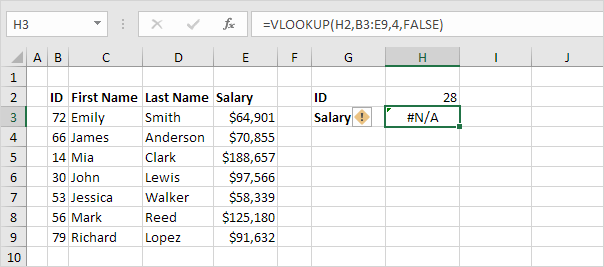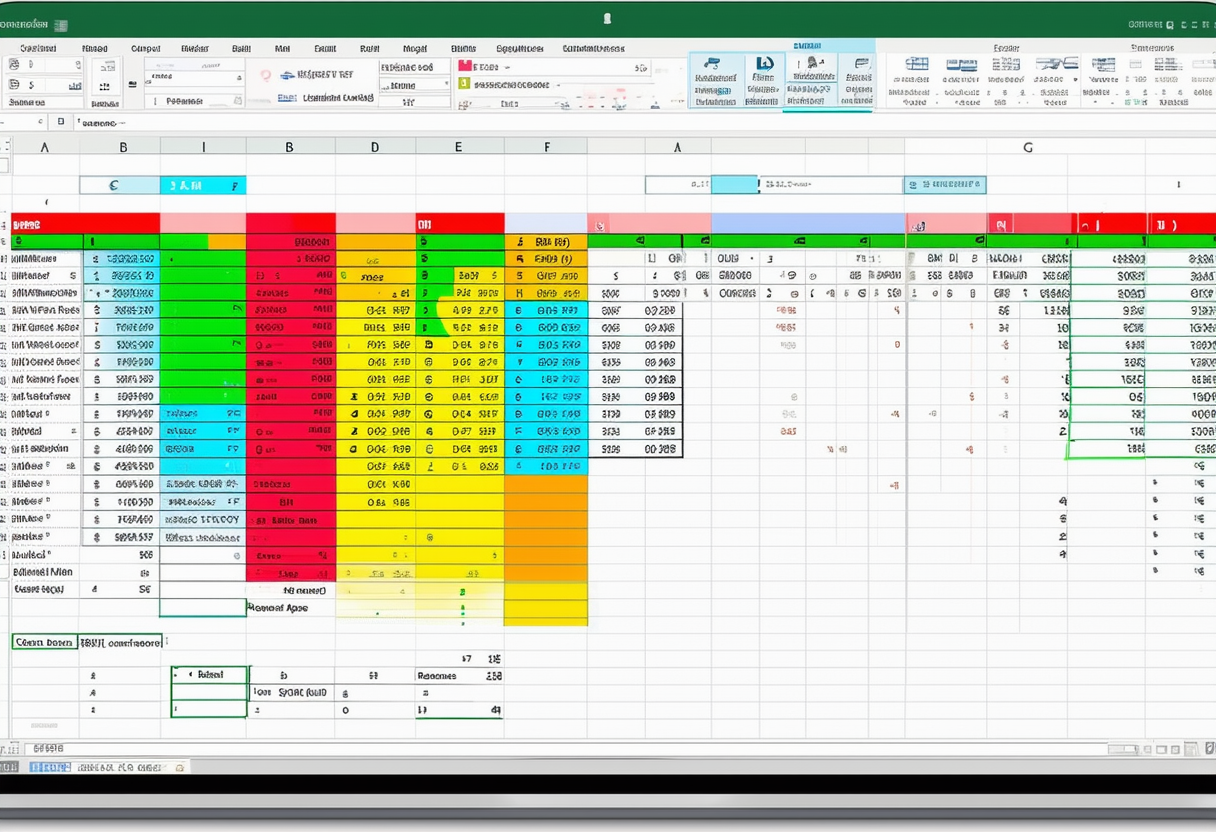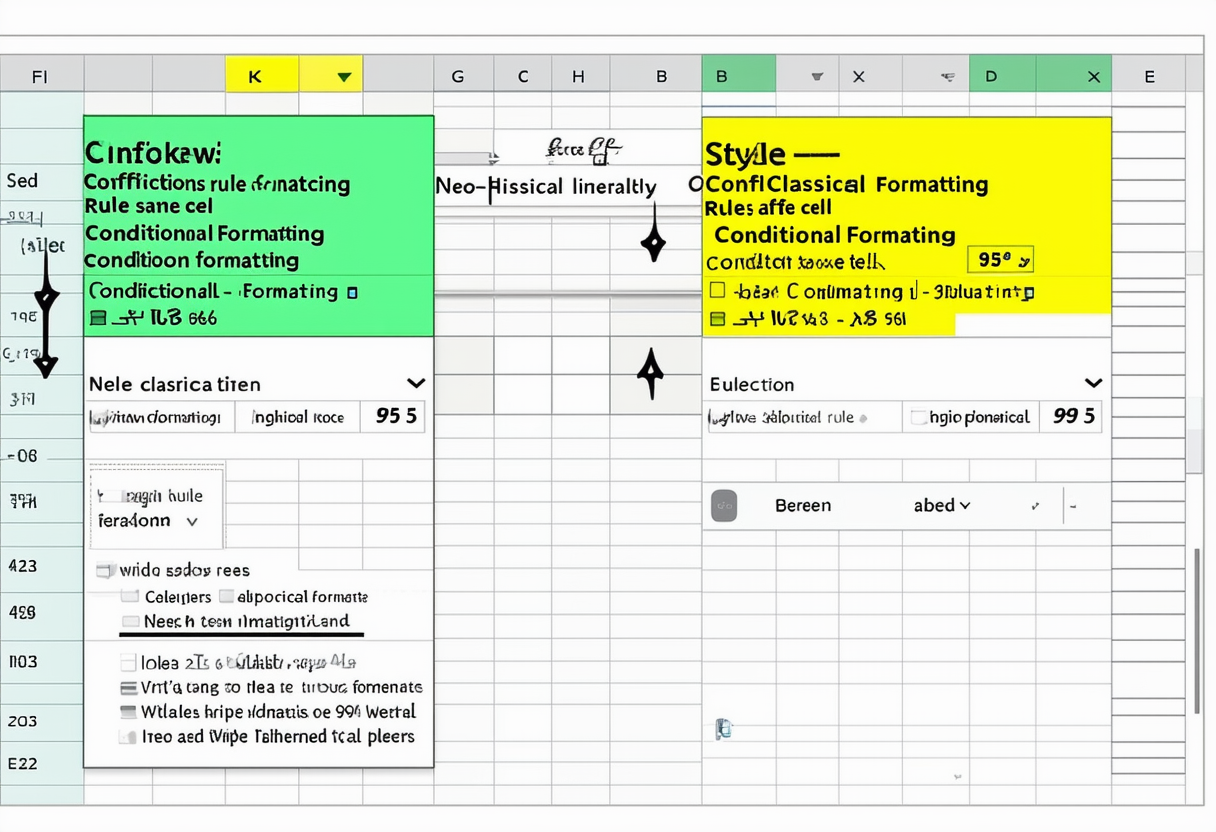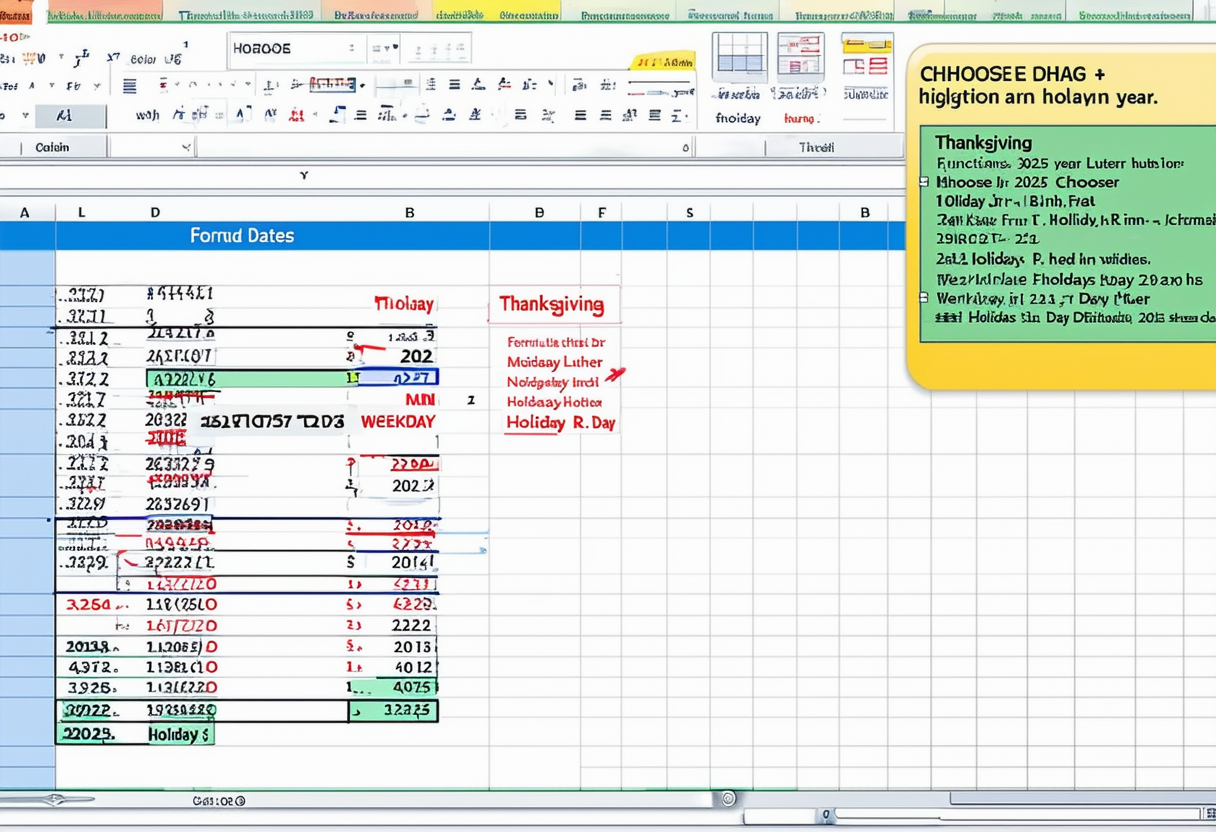Table of Contents
IFERROR
Use the IFERROR function in Excel to return an alternative result such as text when a formula evaluates to an error.
1. For example Excel returns the #DIV/0! error when a formula tries to divide a number by 0.
2. If the formula evaluates to an error the IFERROR function below returns a friendly message.
3. If the formula does not evaluate to an error the IFERROR function simply returns the result of the formula.
4. For example Excel returns the #N/A error when the VLOOKUP function cannot find a match.
5. If the VLOOKUP function evaluates to an error the IFERROR function below returns a friendly message.
6. If the VLOOKUP function does not evaluate to an error the IFERROR function simply returns the result of the VLOOKUP function.
Note: the IFERROR function catches the following errors: #DIV/0! #N/A #VALUE! #REF! #NUM! #NAME? and #NULL!. For example the IFERROR function shown above also catches the #NAME? error if you accidentally misspell the word VLOOKUP. Use the IFNA function in Excel 2013 or later to only catch #N/A errors.












